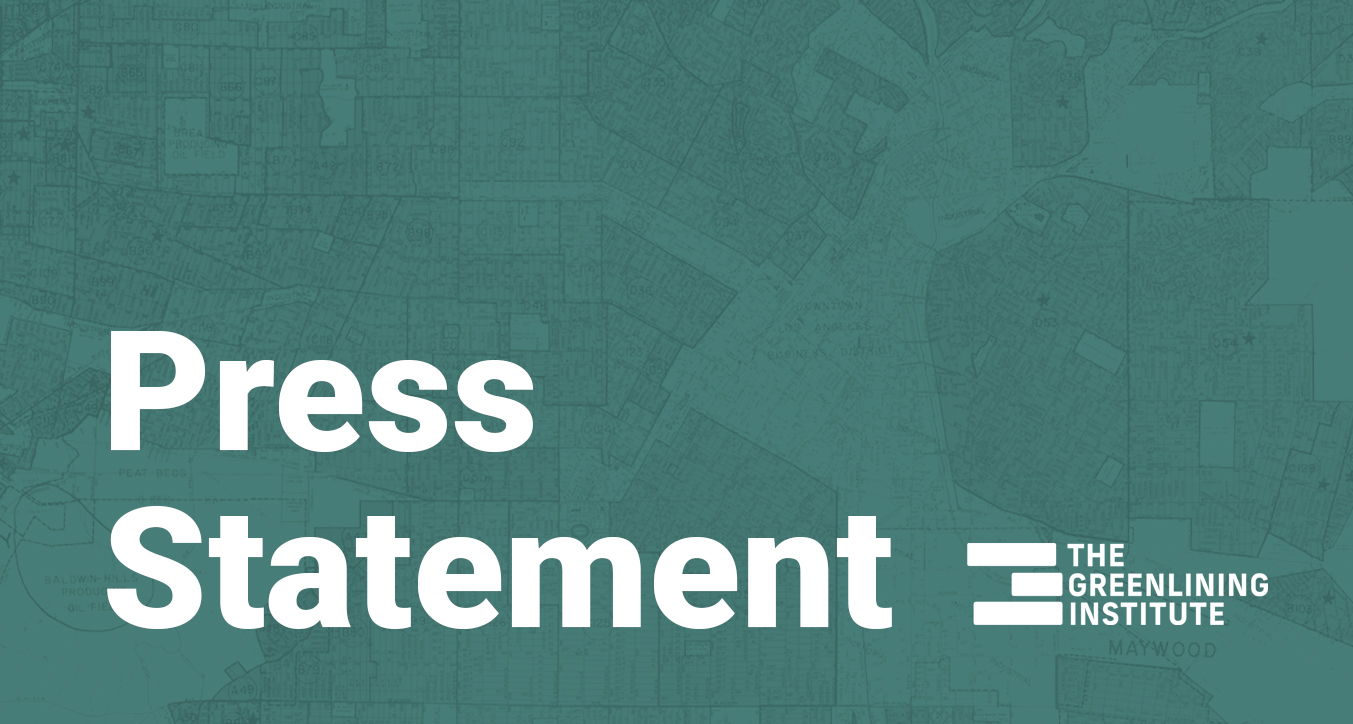Senate COVID-19 Relief Bill Put Corporations First – Now, Let’s Take Care of People

Media Contact
Danielle Bell
SENIOR PROGRAM MANAGER FOR MEDIA RELATIONS
media@greenlining.org danielle.bell@greenlining.org
By
The COVID-19 pandemic has illuminated glaring structural and racial inequities in American society. What the Senate has put forth is not nearly good enough.
US House Speaker Nancy Pelosi speaks with reporters during her weekly press conference at the US Capitol March 26, 2020, in Washington, DC. – The US Senate unanimously passed the nation’s largest-ever rescue package late March 25, 2020, a $2 trillion lifeline to suffering Americans, critically depleted hospitals and an economy ravaged by a rapidly spreading coronavirus crisis. The measure now heads to the House of Representatives, where a Democratic leader said he expected it to pass by voice vote March 27 before it goes to President Donald Trump for his signature. (Photo: Alex Edelman / AFP / Getty Images)
The Senate’s approval of a COVID-19 relief and economic stimulus package—seemingly on track toward House approval as we write this—marked a significant first step. Cash payments and increased unemployment benefits will provide some help to many, but in truth this bill did more for corporations than people. Much more will be needed to support American families, particularly in the communities of color that have been especially hard hit by the pandemic and the economic crisis it has caused.
“While it provides some needed short-term help, the current bill represents just the first, small step in a journey toward an economy that truly works for all.”
While the payments to families, expanded unemployment insurance and support for small businesses included in the bill will help to slow the bleeding, they represent just the beginning of what we must do. We need a plan for a just recovery that supports workers and families and recognizes the special challenges faced by communities of color, where families and small businesses have fewer resources to fall back on. In addition, we also need a long-term plan that addresses structural racism and inequality while moving us toward a more environmentally sound, healthier, more sustainable economy.
While it provides some needed short-term help, the current bill represents just the first, small step in a journey toward an economy that truly works for all.
In the near term, another round of relief and economic stimulus will be needed, and soon. As they consider next steps, Congress and the president must consider the following:
- Implementation will be critical. The oversight committee that will oversee aid to companies must look like America—not like corporate America—with at least three of five members being nonwhite and at least three being women. The inspector general’s and oversight committee’s purview should be expanded to include a review of the small business fund. This oversight should include a report within six months examining how long it has taken for funds to reach small businesses and to what extent those funds have reached businesses owned by people of color
- Families need consistent cash payments for the next 12 months. Economists are predicting “an economic tsunami” that will not end in a few weeks or even a few months. A one-time payment of $1,200 just isn’t enough
- Small businesses need an additional recovery package that matches the $500 billion industry funding in the current bill. They also need a pause in debt payments and incentives for landlords to pause commercial rent payments
- Homeowners and renters need a 12 month pause in housing payments, along with no foreclosures, evictions, or utility shut-offs during that same period. Such actions should also include a particular focus on immigrants and unhoused populations
- Students need their debt wiped clean, which will add $100 billion in economic activity to the economy
- Cities need urgent help. The Federal Reserve should ramp up its acquisition of local municipal bonds so that cities have the funds needed to support communities
- Nonprofits, especially grassroots organizations providing desperately-needed community services, need a bailout. This economic tidal wave threatens small and medium-sized nonprofits, especially those led by people of color, and they need assistance equivalent to the roughly $60 billion being set aside for airlines. These organizations provide critical support to domestic violence victims, unhoused persons, those struggling with substance abuse and more – and those critical services are in danger unless these groups get support, and soon
- Ensure access to health services. The gaps in our health care system have never been more glaring. The $130 billion in aid for hospitals should ensure that funds are used to remove barriers to accessing care for low-income people who may lack adequate health coverage
Speaker Pelosi has stated that another round of recovery legislation is already in the works. Greenlining’s proposals, and the values they represent, should be considered in the follow up legislation, but even they represent just a beginning. The COVID-19 pandemic has illuminated glaring structural and racial inequities in American society. It’s long past time we had a serious conversation about how to rectify them permanently.




